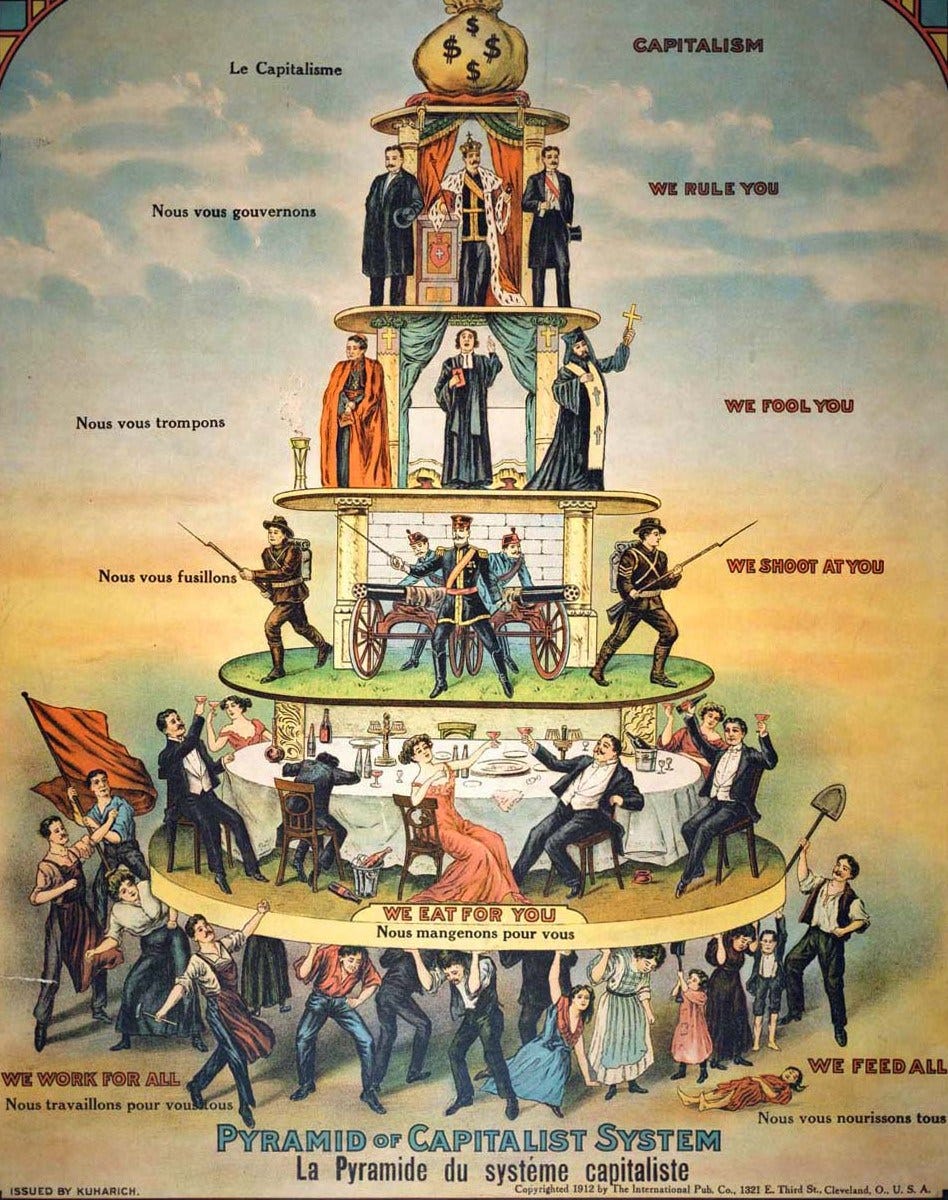
The only person who ever created a job was a person who woke up every day and worked it, but you wouldn’t know that from watching the news.
We’re conditioned to fear our bosses, to study the wisdom of the titans of industry, and to pledge our fealty to whoever controls the means of production. All hail the “job creators,” by which we mean the owners of capital.
Every now and then we drop the charade, though. These last few years, public school teachers showed us the way in Arizona, West Virginia, Oklahoma, and Chicago when they walked out of work and poured into the streets.
With their strikes and walkouts, they shared the timeless message of working people: We are numerous, we are necessary, we are mad as hell. They won important victories for themselves, their profession, and the children they teach.
I was reminded of these basic facts recently when I saw an NBC News story about the 650-plus teachers working second jobs at a pharmaceutical company outside of South Carolina’s state capital.


South Carolina’s teachers are taking second jobs because South Carolina’s Republican-controlled legislature has failed them. Lawmakers here have chosen to let teacher salaries stagnate since the Great Recession, under-fund their own meager promises for things like annual pay raises, and ignore classroom size limits.
These decisions were part of a trade-off: South Carolina schools miss out on $318 million a year due to corporate welfare and tax breaks designed to appease “job creators” like Boeing, Volvo, and Google, according to calculations by Good Jobs First. Other decisions, like then-Gov. Mark Sanford’s elimination of homeowner property taxes for school operation funding, seemed custom-designed to implode school budgets.
The company in the NBC story, Nephron Pharmaceuticals Corporation, opened its South Carolina plant in 2013 with tax breaks from state and local government. The company now employs the teachers in part-time warehouse jobs packing syringes and IV bags for hospitals across the country.
A ninth-year teacher featured in the NBC segment starts her teaching job at 7 a.m., heads to her warehouse job at 4 p.m., and goes home to spend time with her family at 8 p.m.
On NBC, Nephron’s CEO credited the Trump administration’s further tax cuts and deregulation for her company’s recent growth.
In the press release that the company initially sent out in May about its teacher workforce, Nephron framed the news sunnily as the result of an “educator program” that has teachers signing up for shifts via a smartphone app:
The mission is to provide secondary income to these individuals teaching future leaders; while helping Nephron fill and complete orders. Over 650 teachers are currently registered to assist the 1000+ Nephron employees.
Putting it less charitably, the company saw an underpaid population of dependable workers and offered them hourly pay without benefits. Gig-economy companies like Uber could only dream of the press parroting claims that they’re on a “mission” to “provide secondary income” to public servants.
From across the narrow band of South Carolina’s political spectrum, praise poured in.
“Great program,” tweeted the executive director of the state GOP.
“Awesome program … great leadership,” chimed in a spokesperson for the Columbia Chamber of Commerce.
State Sen. Nikki Setzler, South Carolina’s Democratic minority leader, tweeted his gratitude for the company’s “innovative program that helps our teachers.”
Oh, gag me.
I’ve known plenty of teachers who work second and third jobs waiting tables, delivering Christmas trees, pedaling bike taxis, and so on. I haven’t met one who described their secondary employer as a benevolent job creator.


An empty teacher’s desk, like an empty fast food kitchen or an unfilled shift at a factory, is a vivid demonstration that everything falls apart without the labor of working people.
But the culture of American capitalism conditions workers to be grateful for their bosses, and not the other way around. It’s a brain worm, and not a particularly new one.
The French lawyer Joseph Michel Antoine Servan described the brain worm this way in 1767, as quoted by Foucault:
A stupid despot may constrain his slaves with iron chains; but a true politician binds them even more strongly by the chain of their own ideas; it is at the stable point of reason that he secures the end of the chain; this link is all the stronger in that we do not know of what it is made and we believe it to be our own work; despair and time eat away the bonds of iron and steel, but they are powerless against the habitual union of ideas, they can only tighten it still more; and on the soft fibers of the brain is founded the unshakable base of the soundest empires.
At the risk of sounding grandiose: Throw off your chains.


